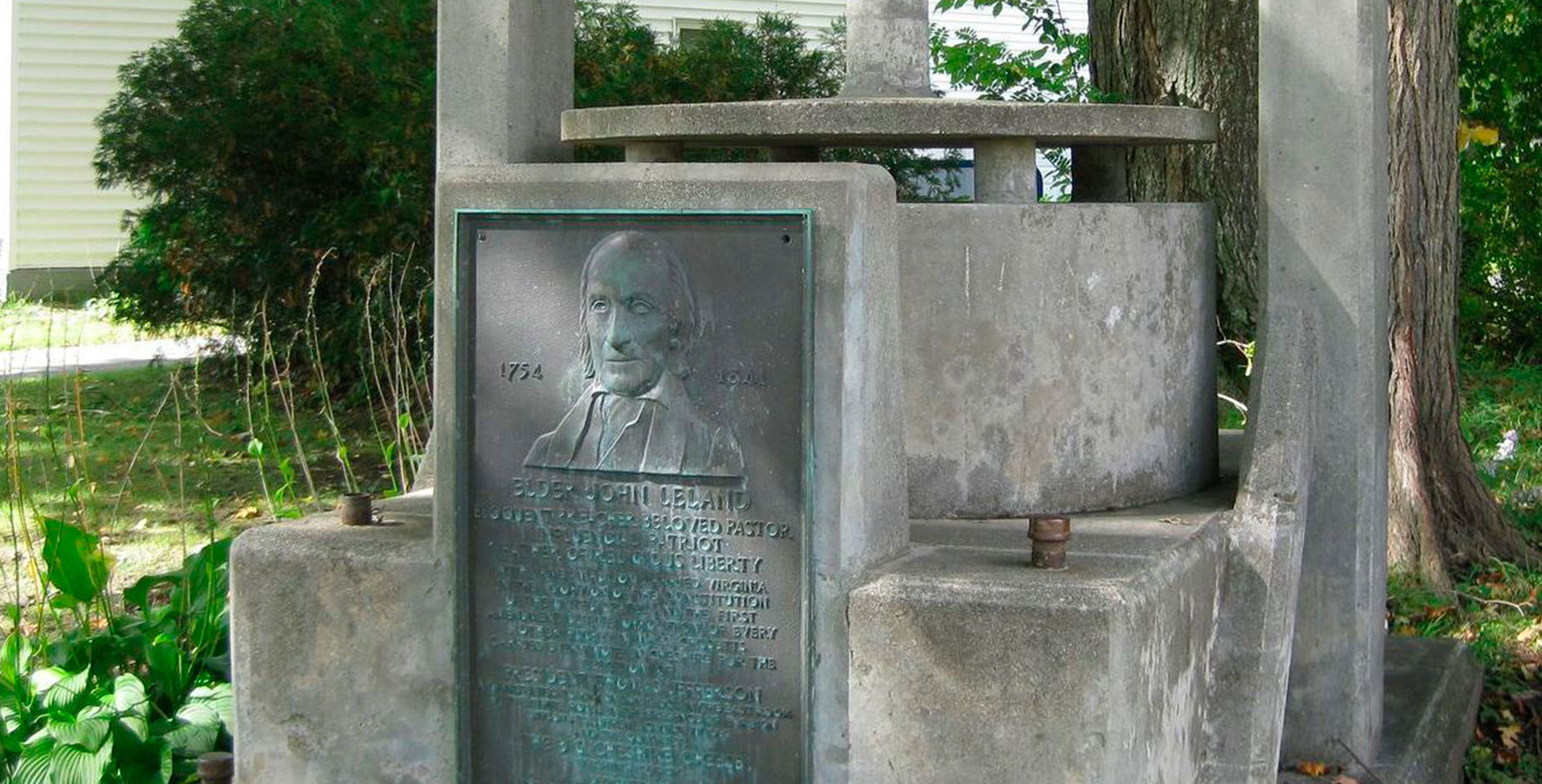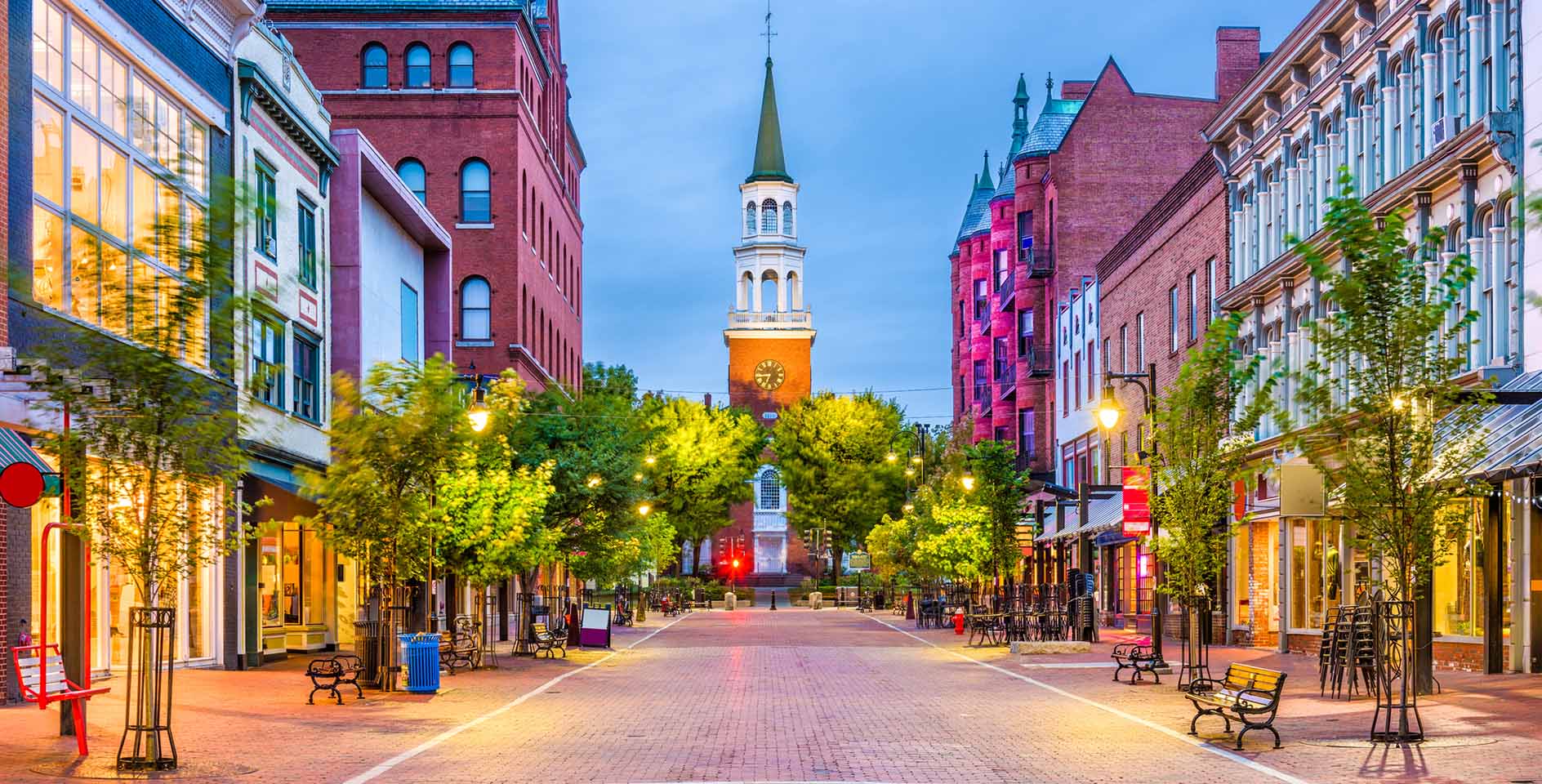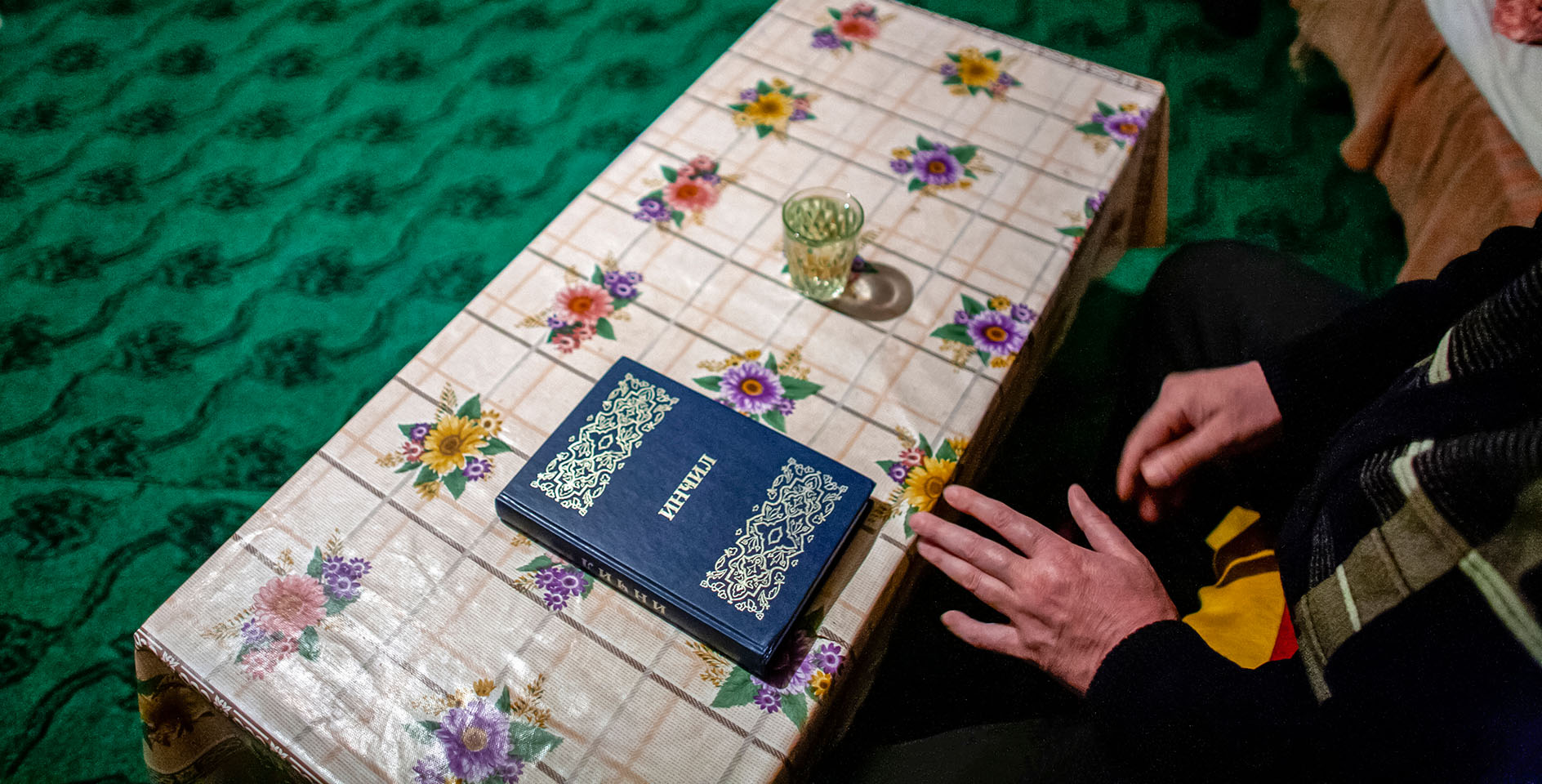When describing the relationship between the church and state, I often turn to the great language of John Leland: “Government has no more to do with the religious opinions of men, than it has to do with the principles of mathematics.” The quote is a reminder that the government has no authority to intervene in the religious opinions of citizens, just as it cannot dictate the rules of algebra or calculus. Leland was a relentless advocate for religious liberty, dedicating his life to the protection of this first liberty. He was also an eccentric figure, providing a massive ball of cheese to President Jefferson upon his inauguration, for example. Eric Smith, in the first biography of Leland titled John Leland: A Jeffersonian Baptist in Early America, gives us a window into the world and life of a man, in all his complexity, who spent his life defending the rights of all to live in accordance with their consciences. Smith recently joined us to talk about this new biography of this eccentric early Baptist leader.
Alex Ward: John Leland (1754–1841) lived across an incredibly dynamic period of American history. You point out that he could remember the coronation of King George III of England as well as the election of William Henry Harrison as the ninth president of the United States. He also would have grown up in the environment shaped by the First Great Awakening and lived to see Charles Finney’s revivalism of the Second. How did this affect Leland?
Eric Smith: Leland spent over 60 years in public life, in an era of unprecedented change in American culture. As an old man, he came to think of himself as a kind of Rip Van Winkle: had he fallen asleep before the Revolution, and then awakened in the 1840s to the age of steam trains and American political parties, he would not have recognized the same world!
Leland’s long and eventful life intersected so many of the important changes that swept America from 1760–1840: the rise of popular, revivalistic religion; the disestablishment of religion in America and progress of religious freedom for all people; the increasing individualization of American society; the growth and sophistication of Baptist Christianity; the emergence of a popular political culture and the participation of evangelicals in partisan politics; the decline and modification of Calvinistic theology in America; the complicated journey of evangelicals and slavery; the rise of voluntary evangelical alliances to influence American politics and culture, and more.
Leland celebrated many of these changes; others he fought kicking and screaming. In either case, his biography provides a unique vantage point from which to view the transformation of early America.
AW: The word that so often comes to mind reading your biography to describe Leland is “individualistic.” He was a man who was led by his conscience and would not allow for another’s authority over him, even to the point of balking at ordination requirements in the Baptist church. Beyond just a strong personality, what led to his deep sense of individualism?
ES: Leland’s individualism defined his life, motivating his legendary efforts for religious freedom, as well as his more eccentric practices. He not only resisted the state-established church, but also ordination, settled pastorates, the use of historic creeds, denominational life, and even the Lord’s Supper. Without a doubt, Leland’s own, quirky personality lay behind much of this. But he also found his individualistic inclinations confirmed in his private reading of the New Testament, where God saves, leads, and judges men and women as individuals. If God called men to account as individuals on the last day, Leland reasoned, then each man and woman had the responsibility, and should be granted the freedom, to prepare for that encounter as best he or she knew how.
The greatest historical factor in Leland’s individualism is the radical revivalism of the Great Awakening, which he imbibed from an early age in the “New Light” hotbed of Grafton, Massachusetts. Along with many of his neighbors in the 1760s, Leland exchanged the traditional, church-centered piety of Puritan Congregationalism for a highly individualistic brand of new birth religion. Along with the paramount experience of the new birth, Leland’s New Light spirituality involved the individual’s direct communication with God through charismatic phenomena, such as dreams, visions, “Bible impulses,” and prophetic premonitions.
AW: When you describe Leland’s definition of religious liberty, you say that he “spoke fluently the revolutionary language of liberty, albeit with a Baptist accent.” How did these two strands work together in Leland’s thought?
ES: Leland lived the majority of his life in Massachusetts, but spent his most formative, young-adult years in revolutionary Virginia. There, from 1776–1790, Leland absorbed and engaged with the religious freedom arguments of Thomas Jefferson and James Madison. Neither man could be considered a traditional, orthodox Christian. But both Madison and Jefferson maintained that the state and religion both flourished when individuals were left free to believe (or disbelieve) according to their own consciences. Leland would frequently quote and allude to the arguments of the Virginia statement for the rest of his life.
But Leland also saw many New Testament principles at work in their reasoning. The individual’s responsibility before God at judgment; the theological distinction between the church and the state under the New Covenant; the necessity of a personal, supernatural conversion to be made right with God; and the inherent power of the gospel to change hearts all compelled Leland to argue for a policy of full religious freedom for all. After Leland returned to his native Massachusetts in 1791, he utilized a powerful combination of biblical and Jeffersonian arguments to contend for disestablishment and full religious freedom, in sermons, speeches, tracts, editorials, and in a brief term in the Massachusetts state legislature.
AW: Leland was not the only prominent Baptist advocate of religious liberty at this time. Isaac Backus, though a generation older, was an important figure for New England Baptists in their struggle against the Congregationalist state church. How were these two Baptists similar, and how did they differ when it came to church-state relations? Did the views of one or the other “win” in the Baptist tradition?
ES: Backus had been the leading Baptist religious liberty spokesman for several decades when Leland came along, and the two men collaborated with and appreciated one another. But while Backus fought religious discrimination and compulsory religious taxes, he also believed that the state should promote religion in a general way. Leland spoke forcefully of “disentangling” or “divorcing” the church and the state, while Backus favored what he termed a “sweet harmony” between the two. For example, Backus had no trouble reading government-appointed fast day proclamations from his pulpit and did not object to the requirement of general religious test-oaths for state office-holders.
Leland, more influenced by Jefferson and Madison, believed such “entanglements” of church and state ultimately damaged both. Church-state unions harmed the state by violating the consciences of law-abiding citizens, creating a frustrated and unstable populous. Church-state unions corrupted the church by filling it with nominal Christians who had not truly been converted. Leland thus drew a stricter line of separation between the church and the state than did Backus. They made common cause in the fight for disestablishment, but after this goal was achieved, the tension between their two positions became more apparent among American Baptists. Generally speaking, Backus’s view won out among mainstream Baptist leaders in New England and more urban areas, while Leland’s view held sway in more rural and frontier regions of early America.
AW: How do we reconcile Leland’s strict separation between church and state and his willingness to baptize the argument of Jefferson and Madison, stump for political parties, and also preach before Congress? Is there a contradiction there for Leland?
ES: Jefferson coined the famous phrase, “a wall of separation between church and state,” in a letter to the Danbury Baptist Association of Connecticut, on the same day that Leland delivered the famous “mammoth cheese” to Jefferson at the White House. Yet it is interesting to note that neither Leland nor his fellow New England Baptists utilized Jefferson’s “wall” metaphor. Precisely what Jefferson meant by this image remains debated: did he intend to create a radically secular public square, or did he envision a more “neighborly wall,” in which religion was safe to flourish beyond the reach of government meddling?
Whatever Jefferson intended, Leland clearly favored the latter vision. He labored to distinguish the church and the state, and to “dissolve any unnatural connection” between the two, so that both could prosper in America. The government’s role was to protect the basic rights of all its citizens, regardless of their personal convictions. This meant refusing to privilege or “establish” any particular church. It also meant preserving citizens’ rights to the “free exercise” of religion. Citizens should be allowed to not only practice their personally-held beliefs, but to try and persuade (not coerce) their neighbors of the same. Leland believed that if the state would simply preserve these freedoms, the gospel would triumph over all rival belief systems of its own power.
AW: Leland is probably best remembered for his religious liberty advocacy. But he was not restricted to that issue. One way he is often portrayed, incorrectly you argue in the book, is as a proto-abolitionist. Is that a fair depiction of him over the course of his life? How did his views change?
ES: Like many evangelicals over this period, Leland took a journey regarding slavery. In the 1780s, he ministered to slaves in the “Great Revival,” when thousands of black Virginians poured into Baptist churches. In the wake of this revival, Leland and other Virginia Baptists began to publicly denounce the evils of slavery, and called for its eventual eradication. Leland’s powerful arguments stirred the wealthy planter Robert Carter to liberate over 400 of his own slaves.
While this is remarkable, it is also important to note that Leland was more “anti-slavery” than “abolitionist.” Rather than calling for an immediate end to the institution (as abolitionists in the 1830s would), he acknowledged the complexity of emancipation and urged Virginia legislators to find a solution “consistent with good policy” as soon as possible. After leaving Virginia in the early 1790s, Leland said little about slavery, and his Virginia Baptist colleagues also pulled back from the issue. As Leland identified more closely with the Jacksonian Democrats, he shared President Jackson’s criticisms of abolitionists like William Lloyd Garrison. In the end, there existed little difference between Leland’s position and that of his political hero, Thomas Jefferson (who also lamented slavery, but offered no solutions).
AW: Recent polling has shown a sharp decrease in religious attendance and identification, especially among Gen Z. Out of this fractured sense of shared moral consensus, an ever-increasing competition of voices in the public square are seeking to define what is good for culture and society. What does Leland have to offer for modern Christians, and particularly Baptists, in how he interacted with the culture around him?
ES: Leland is best remembered for a handful of splashy historical episodes, like his delivery of a 1200-plus-pound wheel of cheese to Thomas Jefferson, or his purported negotiations with James Madison to include a Bill of Rights in the United States Constitution. But Leland was first and foremost an evangelist. He spent the majority of his life preaching the gospel up and down the Atlantic coast as an itinerant revivalist and was proudest of the 1,524 converted individuals he led into the waters of baptism.
Leland engaged in politics largely to ensure that Americans would enjoy the freedom to preach and to respond to this gospel. Unlike many of his contemporaries, he did not want the state’s assistance in establishing churches; he also did not fear the changes in American society, or the diversification of the American population. To the end of his life, Leland maintained that if the gospel is simply turned loose in a free marketplace of ideas, it will prove itself compelling, time and time again. I think Leland encourages us to spend less time wringing our hands over the state of the culture, and more time sharing the gospel with confidence in its power to change hearts.
AW: What stands out to you as the most important factor of Leland’s life for modern Christians? Are there any ways that we can especially learn from this unique and idiosyncratic preacher?
ES: Leland is not a perfect model, and he knew it. He liked to say that, “Christ did not trust his cause to the goodness of his followers, but rested it on his own shoulders.” But we can learn from both the strengths and the weaknesses of historic Christians. As for his foibles, Leland’s hyper-individualism led him to devalue the role of the church in the believer’s life. I find this to be a most relevant warning for modern American Christians.
Yet there is also so much to admire about Leland. He was a courageous, passionate, single-minded preacher of the gospel. As an itinerant evangelist, he repeatedly sacrificed his own comfort and safety to tell early Americans about the salvation that is found in Jesus Christ. He stood out from many of his contemporaries in his ability to communicate the good news to ordinary people in an accessible and engaging manner. He also never forgot that he needed the gospel as much as any of his listeners. “Let the preacher view himself as a brother-sinner to his hearers,” Leland advised, “and view sin as a great misfortune, as well as a crime; and, out of pity and love, persuade, and pray the sinner to be reconciled to God, if he wishes to do him good.”







